Rosie Jones, Jordan Hogg, Dwayne Eaton and Noor Abdel-Razik reveal the critical role played by the broadcaster
As the consultation on the potential privatisation of Channel 4 closes, four of its previous production trainees have opened up about the role it played in their careers and the importance of its unique remit-led approach.
The broadcaster has helped break new talent into the industry for over a decade, offering important opportunities for new and under-represented voices.
Rosie Jones – Comedian/Presenter
“The typical route into TV is as a runner, where your main job is running around doing errands and making everyone tea” says comedian and presenter Rosie Jones. “I thought, well I can’t run and I can’t handle boiling water.”
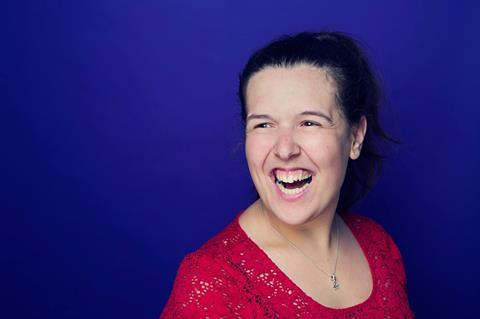
Jones, who has cerebral palsy, joined Channel 4’s disability trainee scheme in 2011. She was 21 at the time, and particularly interested in the broadcaster as a result of its output and commitment to diversity. The scheme offered her an alternative route into the industry that “allowed me to leap-frog into a more office-based role as a junior researcher,” she says.
She was subsequently placed on a year-long contract with Objective Media Group, which at the time was producing series such as Peep Show and Fresh Meat. Despite that, Jones did not realise that comedy would become her specialty later down the line.
“When I applied, there was also a presenter-trainee scheme ahead of the Paralympics,” says Jones. “My friend thought I’d be a great at it, but because of my voice I thought I’d never be a mainstream TV presenter. I could see my path in production more than I could see it as a presenter. I do think that’s worked out better for me, because I know how TV works,” she adds.
After her original contract ended, Objective kept Jones on for another two years. “Without the scheme, I don’t know how I would have gotten a job in TV, because of both my disability and because I didn’t live in London” she said.
“C4 has had a huge impact on my life, they always checked in on me and were supportive. When I made the step up to be a comedian they really nurtured me. I don’t think another channel would have given me my own show when I’d only been doing comedy for five years. I wouldn’t be sat here if it wasn’t for their scheme”.
For Jones, such schemes remain vital. “Even in 2021, you’ll go to a production company and see a runner that’s related to the MD, it’s so clique-y and schemes like this open up TV to those outside of privilege”.
Rockerdale Studio’s Mission: Accessible, starring Rosie Jones, was recently recommissioned for a second series and has been nominated for a Broadcast Tech Award.
Jordan Hogg – Bafta-winning director
Fresh from directing an episode of upcoming prison drama Screw for Channel 4, Jordan Hogg still feels incredibly grateful for each opportunity he receives.
“To work on a production with Rob Williams has been unbelievable” he says, referencing Screw.
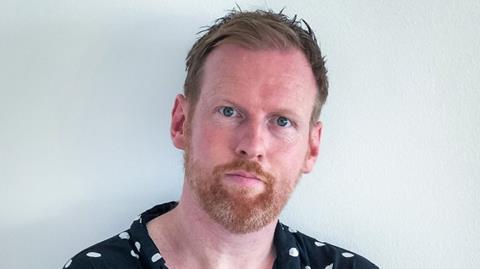
Growing up in North Yorkshire, Hogg was absorbed by television from an early age and watched eagerly throughout a difficult period of his childhood. He was keen to pursue a television career but was unsure how he could enter the industry and became a fitness instructor when he left school. He later went back into education to study at university but continued to work full-time.
In his final year, he entered Maverick TV’s Shooting Party project, which sees nine disabled directors make short films. He was noticed by Channel 4 and encouraged to apply for its training scheme.
He was successful and placed at Company Pictures where he primarily worked on the story team for the critically acclaimed Shameless.
“I had no idea how a proper set worked, I knew to do things my way, but every day I got to pick the brains of well-versed directors like Paul Walker” he reflects. “The scheme introduced me to the industry and helped me get my foot in the door. I then went onto get my first directing job on Hollyoaks.”
Hogg is now a BAFTA-winning director, was named as a BAFTA-Breakthrough talent and is preparing to direct his first show. Hogg is “speaking to the producer about how we can also help runners and new starters” and is grateful for the C4 scheme.
“I was proud when I was offered a directing position on Ackley Bridge, I really saw it as my opportunity to pay C4 back for having faith in me. They absolutely turbo-charged my career in TV.”
Jordan Hogg has directed series including Ackley Bridge, Casualty, Death in Paradise and the Dumping Ground.
Dwayne Eaton – BBC commissioner
Dwayne Eaton was resigned to the idea that a career in TV had passed him by. Just as he was about to graduate from university with a journalism degree, his mother passed away and he focussed on caring for his younger sibling. He then embarked on a successful career as an account manager at a telecommunications company. Yet creatively, he felt unfulfilled.
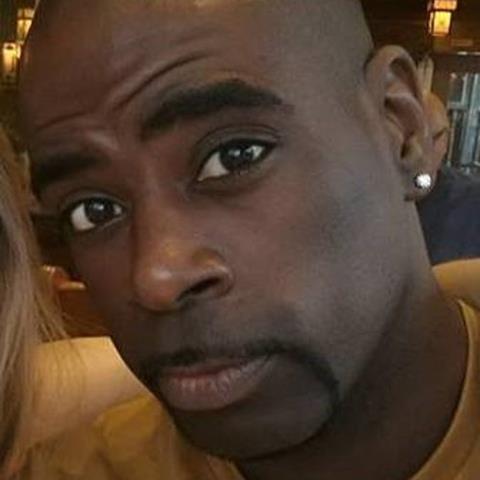
“I felt I was too old and my opportunity had gone,” he says, but continued to search for creative positions during his lunch breaks. This is when he came across the Channel 4 production trainee scheme.
At 27, Eaton was one of the oldest in his cohort of the scheme. He was placed at factual indie Diverse, where he was given a one-year contract.
“It’s still the best decision I ever made” he reflects. “It gave me myriad skills, from writing treatments to editorial, shooting and producing, I was getting real world professional skills.”
After his time on the production trainee scheme, Eaton went freelance. Having previously held a steady office job, the transition to freelance working was particularly difficult.
“I worked as a researcher for about two months and then it dried up. I had about 4 months without any work and it was terrifying. At the start, the gaps between jobs can be long, but gradually they became less and less.”
Eaton then landed a role working on Big Brother, where he realised that entertainment was the route he wanted to pursue.
He was able to utilise the skills and contacts he had amassed and learned about the BBC’s assistant commissioner diversity scheme. Eaton applied successfully, and has since stayed at the BBC, now working as an entertainment commissioning executive.
Eaton believes the C4 scheme is vital for the industry.
“The people I know who join these schemes are not doing this because they didn’t have the talent to get into TV otherwise, but because it’s the only way they could guarantee themselves a wage for an entire year, to get them started. Unless you have some sort of support behind you, it’s so hard to break into this industry”.
The commissioner adds that the only issue he’s found with the scheme is the way that they are viewed by others in the industry.
“To get into a diversity scheme is really hard, the standard is so high. People often look down on them, but after a while your work speaks for itself.”
Dwayne Eaton works as a commissioning executive at the BBC in the entertainment department.
Noor Abdel-Razik – assistant producer at Firecrest Films
Noor Abdel-Razik was earmarked as a Channel 4 Rising Star in 2018, having attended a pop-up event in Dundee, where she was studying for her master’s degree.
Originally from Dunfermline, Noor had no connections to the TV industry but was given work experience at Channel 4 as part of the Rising Stars scheme.
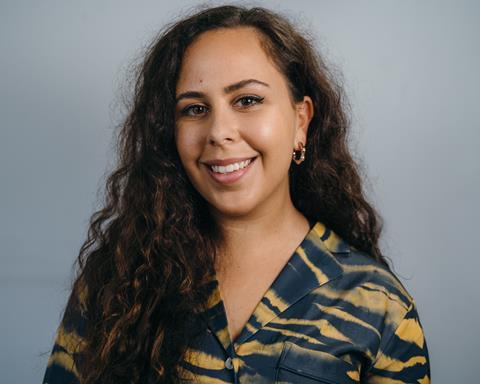
“It really helped to demystify the television industry for me. I didn’t have the money to go to London and was working in Tesco part-time while finishing my masters, but Channel 4 paid for my accommodation and travel, which was vital” she said. “I couldn’t do ad-hoc runner days to gain experience that way.”
When the trainee scheme opened for that year, she applied for the position in Glasgow and was invited down for an assessment day, where her travel was also covered.
Noor was successful in her application and worked as a researcher for Scottish indie Firecrest Films for primetime C4 series Supershoppers and episodes of Dispatches. “It was really varied, which was great” she adds.
Noor had been offered another temporary researcher role but said that Channel 4’s scheme was “a no-brainer” because of the year-long contract and variety of experience available.
“I feel like I would have found a way into TV, but everything I learned on the scheme I use today, and I still speak to the people I met. Freelancing can be a lonely business, but thanks to tthem, it never really felt lonely.”
Noor Abdel-Razik is returning to Firecrest as an assistant producer on an upcoming project, having recently finished on a production with BBC Scotland.









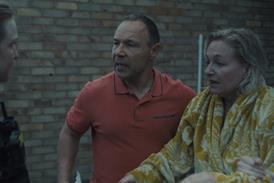




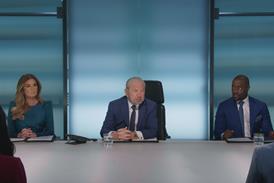

















No comments yet